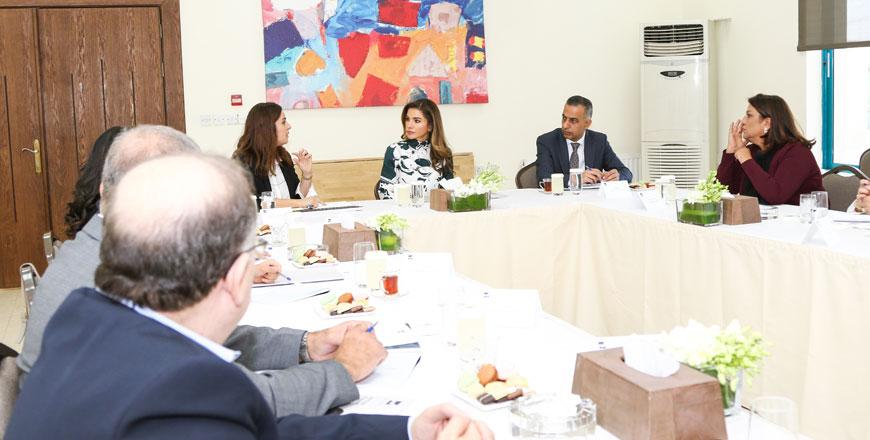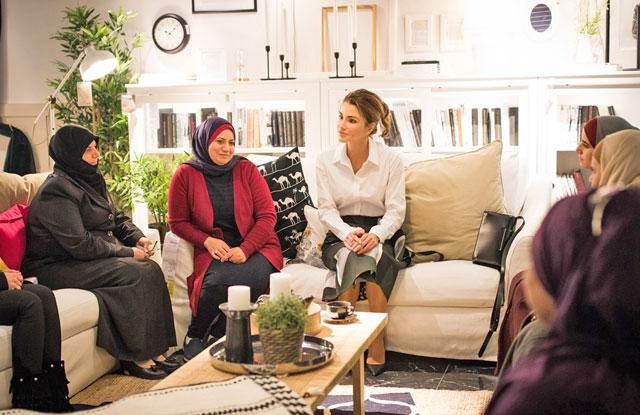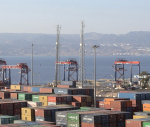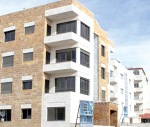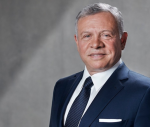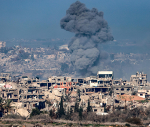You are here
Jordan River Foundation launches community empowerment programme in Aqaba
By Ana V. Ibáñez Prieto - Jul 27,2018 - Last updated at Jul 30,2018

The project will seek to create and sustain a minimum of 80 job opportunities for underprivileged community members (Photo courtesy of JRF)
AMMAN — Aiming to empower individuals to “take control of their future and lead fulfilling, independent lives,” the Jordan River Foundation (JRF) has launched a new community empowerment programme to start mobilizing Syrian refugees and vulnerable Jordanians residing in Aqaba to develop business projects and become job ready, soughting to empower beneficiaries to become self-reliant and support them out of poverty.
“Current assistance efforts in Aqaba lack any livelihood and empowerment components for both Jordanian nationals and Syrians, as the support usually comes in the form of charity and cash assistance,” JRF Project Manager Majd Sulaiman told The Jordan Times when asked about the choice of the project’s target location, warning that “Aqaba receives minimal assistance due to the relatively low number of registered Syrian refugees, which stands at 3,401 according to UNCHR data of 2017.”
“However, according to the latest national census, a total of 7,799 Syrians reside in Aqaba, in addition to a total of 9,311 refugees of other nationalities,” Sulaiman noted.
Launched at the JRF’s Queen Rania Al Abdullah Community Empowerment Center (QRCEC) last Saturday in partnership with the Danish Refugee Council (DRC), the project follows a “tested approach that has been successfully implemented by JRF across communities in Jordan over the past years,” according to a statement by JRF.
Funded by the Bureau of Population, Refugees and Migration (BPRM), the project will seek to create and sustain a minimum of 80 job opportunities for unprivileged community members, as well as increasing their average household income leading to better living conditions.
“The method was modeled in accordance with the local needs of vulnerable community members of Jordan, and it has evolved over the years to ultimately ensure economic growth and offer comprehensive solutions to poverty via the realization of financial and entrepreneurial independence,” Sulaiman said.
“The approach has a lasting positive trickle-down effect on families and communities at large,” she added, noting that “the program also focuses on the social cohesion element, which aims to strengthen social relations, interactions, and ties between communities leading to improved community participation and exchange of ideas and expertise.
The eligible beneficiaries were selected through two days of interviews conducted by a special evaluation committee and system, and a workshop will soon be held in order to determine the training needs of the selected participants, according to a statement by JRF.
Related Articles
AMMAN — Her Majesty Queen Rania on Sunday chaired the annual meeting of the Jordan River Foundation (JRF) Board of Trustees, which discussed
AMMAN — The Jordan River Foundation (JRF) on Wednesday signed a new partnership with the embassy of the Netherlands to launch a project aime
AMMAN — Her Majesty Queen Rania on Tuesday visited IKEA Jordan to view the multinational furniture group’s first Jordanian collection, devel


